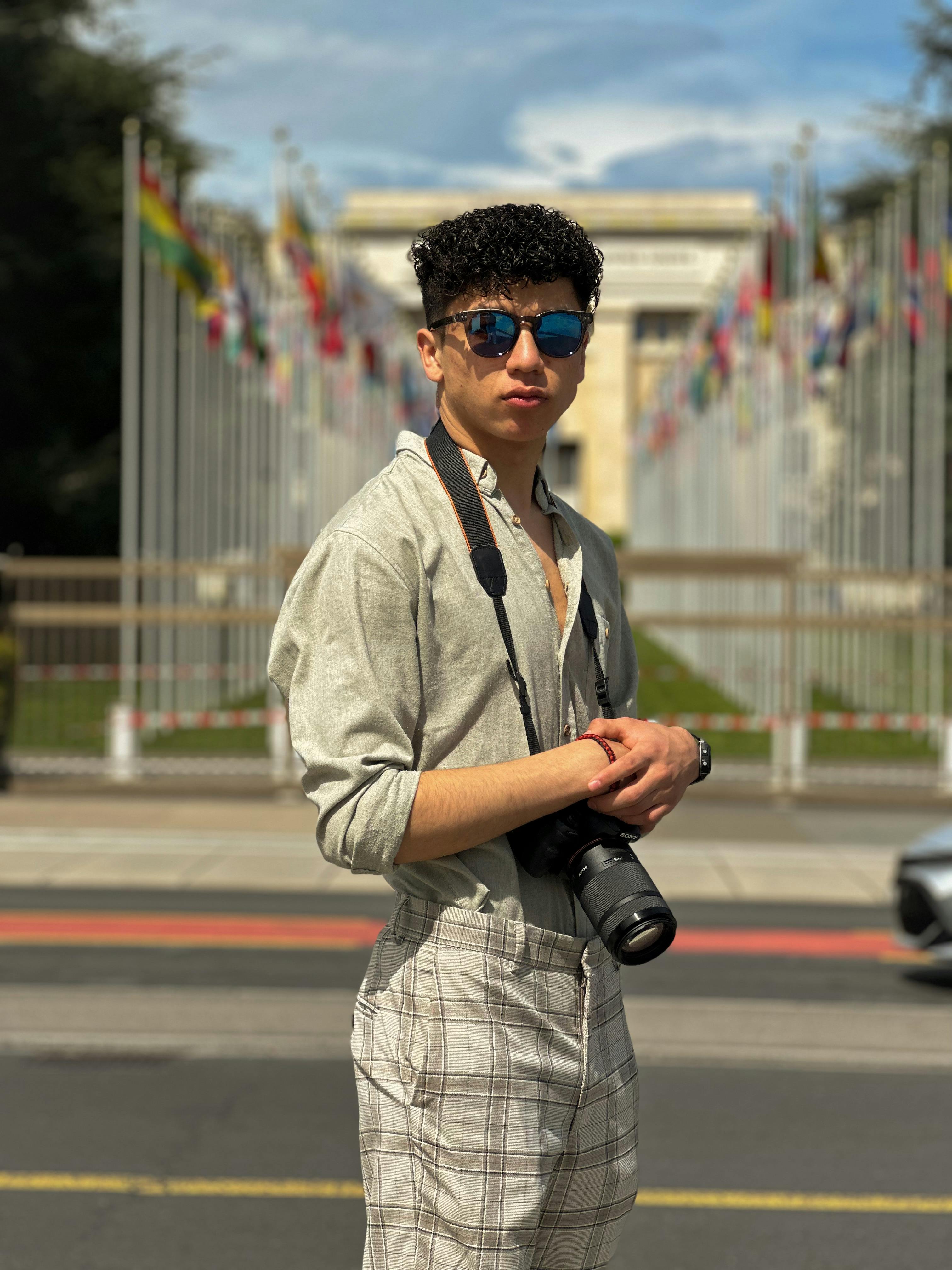 Given the impediment course of authorized challenges, defiant senators and political events rendered unviable partners as a result of past associations with the army, some question whether or not the navy-appointed Senate will stop Move Forward from participating in government altogether. The heads of both the Bhumjaithai and the United Thai Nation parties, two of the three events required to make forming such a minority government possible, have already publicly stated their opposition to that route. With no solution to force Pita via, and no various candidates for prime minister to put forward, Move Forward could possibly be pressed to permit a candidate from one of its coalition companions to make a bid for the premiership. After this, a variety of eventualities will grow to be potential, starting from a authorities led by one other certainly one of Move Forward’s coalition members to the declaration of martial law. He exhibits the issues of underwriting the Lao government’s funds, which regularly included bribes; as well as how the CIA promoted civic-action packages for rural development; resolved management strife; monitored elections; armed the Hmong hill tribe; enlisted Thai surveillance groups; coped with Japanese activists opposing the struggle; oversaw commando raids towards the North Vietnamese; tried to subvert overseas agents; handled the opium commerce; challenged misinformation; helped to form a coalition government; and dismantled an enormous paramilitary network.
Given the impediment course of authorized challenges, defiant senators and political events rendered unviable partners as a result of past associations with the army, some question whether or not the navy-appointed Senate will stop Move Forward from participating in government altogether. The heads of both the Bhumjaithai and the United Thai Nation parties, two of the three events required to make forming such a minority government possible, have already publicly stated their opposition to that route. With no solution to force Pita via, and no various candidates for prime minister to put forward, Move Forward could possibly be pressed to permit a candidate from one of its coalition companions to make a bid for the premiership. After this, a variety of eventualities will grow to be potential, starting from a authorities led by one other certainly one of Move Forward’s coalition members to the declaration of martial law. He exhibits the issues of underwriting the Lao government’s funds, which regularly included bribes; as well as how the CIA promoted civic-action packages for rural development; resolved management strife; monitored elections; armed the Hmong hill tribe; enlisted Thai surveillance groups; coped with Japanese activists opposing the struggle; oversaw commando raids towards the North Vietnamese; tried to subvert overseas agents; handled the opium commerce; challenged misinformation; helped to form a coalition government; and dismantled an enormous paramilitary network.
The Lao king abdicated, the Pathet Lao established the People’s Democratic Republic of Laos, and the last domino of Indochina toppled, Conboy says. Everything tumbled down with the fall of Phnom Penh to the Khmer Rouge and of Saigon to the North Vietnamese in 1975. At that point, “communist morale throughout Indochina started to skyrocket,” Conboy says. The e-book begins with the 1954 Geneva Accords that “foisted a mantle of diplomatic neutrality upon Laos, theoretically exempting it from the Cold War rivalry,” Conboy says. The defeat and exit of the French in 1954 and the positioning of Pathet Lao forces supplied an unconquerable homefield advantage for the communists. Americans fled the country by air; Lao Royal Army troopers and American cohorts evacuated the nation by boat throughout the Mekong River to Thailand. Along with sixteen pages of photographs, Spies on the Mekong comprises maps, a bibliography, and endnotes. You may need a note pad to keep track of the characters and acronyms in Ken Conboy’s Spies on the Mekong: CIA Clandestine Operations in Laos (Casemate, 256 pp. Conboy’s e-book shows that spy-world operations are restricted in scope, and that its practitioners perceive that state of affairs. Through this chronicle of the CIA’s surveillance activities in Laos, Conboy gives an insider’s look on the nation from the 1950s to 1970s. He reveals us the nation’s leaders and their interactions with a mess of opponents trying to outwit the prime minister and achieve management of the nation: agents, diplomats, and ambassadors from the U.S., North and South Vietnams, China, and Russia.
 Essentially the most heinous pitfall, according to Conboy, was the International Control Commission’s failure to adjudicate ceasefire violations. The move is seen as an vital opportunity for any new, reformist authorities to assert extra civilian control over Thailand’s security apparatus. After the progressive Move Forward Party’s dominant efficiency in Thailand’s 15 May parliamentary election, it appeared logical that social gathering leader Pita Limjaroenrat would become the country’s subsequent prime minister. Parliament is predicted to vote for a brand new prime minister right this moment and, if Pita is unable to safe the premiership, Thailand could witness the beginning of an uncertain period of political deadlock that might fly in the face of the opposition’s electoral victory. Pita’s potential route to the prime minister’s office is an arduous one. Despite those potential obstacles, Conboy has written a mind-boggling, yet pleasingly informative, account of the Central Intelligence Agency’s operations in Laos earlier than and during the American warfare in Vietnam. Despite that commonality, they had differing approaches to intelligence surveillance. An knowledgeable on South and Southeast Asia, Conboy has written more than 20 books on military and intelligence operations in these areas.
Essentially the most heinous pitfall, according to Conboy, was the International Control Commission’s failure to adjudicate ceasefire violations. The move is seen as an vital opportunity for any new, reformist authorities to assert extra civilian control over Thailand’s security apparatus. After the progressive Move Forward Party’s dominant efficiency in Thailand’s 15 May parliamentary election, it appeared logical that social gathering leader Pita Limjaroenrat would become the country’s subsequent prime minister. Parliament is predicted to vote for a brand new prime minister right this moment and, if Pita is unable to safe the premiership, Thailand could witness the beginning of an uncertain period of political deadlock that might fly in the face of the opposition’s electoral victory. Pita’s potential route to the prime minister’s office is an arduous one. Despite those potential obstacles, Conboy has written a mind-boggling, yet pleasingly informative, account of the Central Intelligence Agency’s operations in Laos earlier than and during the American warfare in Vietnam. Despite that commonality, they had differing approaches to intelligence surveillance. An knowledgeable on South and Southeast Asia, Conboy has written more than 20 books on military and intelligence operations in these areas.
As Conboy places it: “The Lao soap opera irrevocably veered off script.” In his telling, occasions reminiscent of a tribal peasant leading a coup that temporarily managed Vientiane performed like a “Saturday Night Live” skit. The Lao National Army was not up to the duty of defending the Royal Lao Government against communist Viet Minh and Pathet Lao forces that refused to leave the country as agreed. A minority government would even be weak to removing by the opposition, Chambers famous. Conboy’s history lesson gives more intrigue than violence. People in the e-book-friends and foes-come by clearly in Conboy’s thoughtful vignettes about them. After World War II the U.S. A lot of the agents had been World War II veterans with Ivy League educations and former overseas postings. Based on what Conboy tells us, the CIA’s productiveness in Laos boiled all the way down to a delaying motion. Laos. Teens with guns controlled the countryside.
If you have any sort of concerns pertaining to where and ways to make use of Medical University In Bangkok – Our Webpage – , you can call us at the web-site.